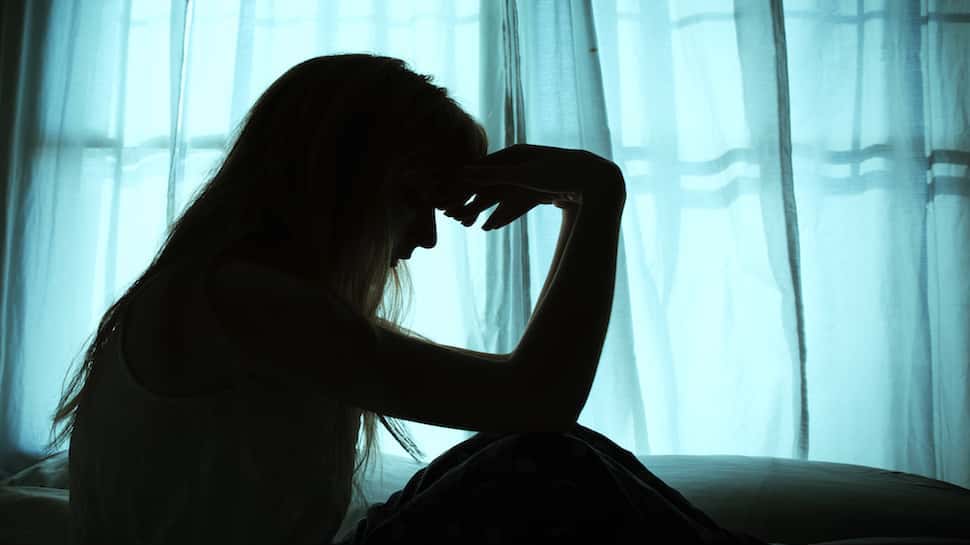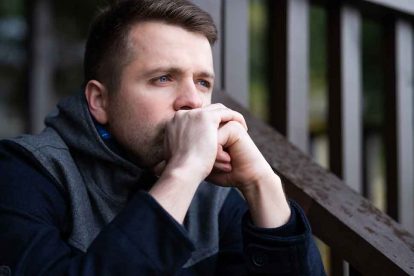
Complex PTSD Symptoms and Diagnosis
The symptoms of complex PTSD resemble those of conventional PTSD, but they are more painful and often dominate the lives of those who experience them. Complex PTSD is one of the most debilitating mental health disorders, and yet it remains largely unknown and is only now beginning to receive the attention it deserves. A diagnosis for complex PTSD is just the first step to recovery, and only with intensive, long-term treatment can sufferers expect to overcome their symptoms and have a chance at a normal life.
Complex PTSD is a variant of post-traumatic stress disorder that affects people who’ve experienced intense trauma over a prolonged period. The complex PTSD symptoms are similar to those of PTSD, but they are more severe, disabling, and pervasive.
Knowledge about the psychological effects of long-term trauma is still accumulating, as mental health experts continue to research this previously neglected topic. However, it is already known that complex PTSD takes a heavy toll on sufferers, often leaving them unable to cope or function.
Diagnosing complex PTSD starts with recognizing its symptoms, which do have some overlap with other conditions (particularly PTSD, its “parent” disorder). But the signs and symptoms of C-PTSD are more potent, extensive, and extreme than those produced by other similar conditions, and that helps psychiatrists and psychologists identify C-PTSD when it is present.
Differences between PTSD and Complex PTSD
Both PTSD and complex PTSD are anxiety disorders caused by exposure to severe trauma and/or abuse. But PTSD is usually a side effect of sudden, shocking, short-term trauma and suffering, while complex PTSD develops as an aftereffect of long-term abuse and victimization, and the feelings of helplessness and rage that accompany it.
More so than PTSD, complex PTSD distorts a person’s perspective on the world and reality. PTSD sufferers fear the events or circumstances that can trigger their symptoms, but fear and anxiety affect people with complex PTSD at a fundamental level, impacting their emotions, self-judgments, and capacity to forge connections with other human beings.
Some risk factors for complex PTSD include:
- Repeated incidents of physical, sexual, or emotional abuse during childhood
- Being a victim of domestic violence
- Becoming a victim of human trafficking or slavery
- Living and trying to survive in a war zone, or in an area destroyed by natural disaster
- Exposure to torture or captivity by hostile forces
Naturally, PTSD can also develop in people who’ve experienced these extreme forms of suffering or deprivation, and in fact about nine-in-10 complex PTSD sufferers also meet the diagnostic criteria for conventional PTSD.
But complex PTSD causes more intense and invasive symptoms, superseding PTSD in its severity. Complex PTSD sufferers:
- Experience more frequent, vivid, and frightening flashbacks
- Struggle even more to manage and control their emotions
- Feel immense panic in anticipation of events that might trigger bad memories
- Have more terrifying nightmares and struggle even more with sleep disturbances
- Exhibit hypervigilant tendencies that are more deeply tinged with fear and paranoia
- Experience feelings of dissociation that are more extreme and in some instances can transform into multiple personality disorder
Complex PTSD includes additional upsetting elements that are not commonly experienced by conventional PTSD sufferers. These added elements include:
- Wounded and dysfunctional self-perception. C-PTSD sufferers often blame themselves for their suffering. They may be torn by feelings of guilt and shame. They may feel worthless and helpless to overcome their troubles or manage their lives, and their self-esteem may be deeply damaged by their past encounters with extreme abuse.
- Loss of faith in everything. People with C-PTSD have little or no faith in the world, in people, in spiritual teachings, and in themselves. They may be pessimistic, cynical, and mistrustful to the extreme, to the point where even kindness is viewed with suspicion.
- Turbulent and troubled relationships. Men and women with complex PTSD often search for someone to play the role of their rescuer, or for a father or mother figure who can give them what their abusive parents did not. Their inability to trust is another barrier to relationship success, as are their moodiness and unwillingness to discuss the past.
Signs and Symptoms of Complex PTSD
Complex PTSD produces a range of physical, emotional, and behavioral symptoms that impact daily life in numerous ways. These symptoms can interfere with work performance, parenting, financial management, relationship maintenance, personal care, and interactions with people in a variety of situations.
The physical symptoms of complex PTSD are typical of anxiety disorders. When sufferers are exposed to triggering events, environments, individuals, or scenarios, they may experience:
- Elevated heart rate
- Feelings of dizziness or lightheadedness
- Breathing problems, including hyperventilation
- Heavy sweating
- Muscle tightness or cramps
- Chest or stomach pain
- Shaking or trembling
- Brain fog, i.e., the inability to think clearly or react quickly
These are all signs of the flight-or-fight response, as the body mobilizes itself for quick and decisive action in the face or perceived threats. But in complex PTSD sufferers, these feelings are evoked by vivid memories or flashbacks to previous trauma and have little to do with any actual real-world threat.
Emotionally, complex PTSD sufferers are often in turmoil, not just when flashbacks are triggered but in general.
Some of the emotional and behavioral symptoms of complex PTSD include:
- Poor emotional regulation. People with C-PTSD struggle to control their emotions, which are often volatile, fear- or anger-based, and often overwhelming and powerful. This can negatively affect their behavior, creating embarrassing situations or causing conflicts in relationships.
- Extreme isolation and withdrawal. Complex PTSD sufferers often feel alienated from other people, fearing they will be rejected, misunderstood, or exposed if they let others get too close.
- Hypervigilance. Perceiving the world as filled with malice, men and women with C-PTSD are constantly observing other people and every other element of their environments, searching for signs of danger or clues that reveal bad intentions.
- Toxic guilt and shame. Too often complex PTSD sufferers feel as if they somehow deserved to be abused, or that their failure to escape their terrible circumstances was a sign of weakness or failure.
- Involvement in unhealthy relationships. Robust and productive relationships are difficult to create and maintain for C-PTSD sufferers, who carry enormous amounts of emotional and psychological baggage with them wherever they go.
- Chronic mistrust. In the minds of people with complex PTSD, nothing is as it seems and the people who can be truly relied on are few and far between. Even if they do manage to build some close relationships, they may become mistrustful or disillusioned if they see any signs of questionable or dishonest behavior.
- Depression. Whether they meet the clinical criteria for depression or not (as many will), complex PTSD sufferers tend to be plagued by feelings of sadness and low energy and motivation.
- Poor self-esteem and a lack of self-confidence or assertiveness. People with complex PTSD usually have a poor and distorted self-image. They see themselves as damaged and have a hard time feeling hopeful about their futures or their chances of finding success.
- Dissociation. People who develop dissociative symptoms begin to feel disconnected from reality. They may withdraw into fantasy worlds, and at the extreme edge they may develop dissociative identity disorder, which is the correct label for what used to be known as multiple personality disorder.
- Suicidal talk, thoughts, or actions. The symptoms of C-PTSD can be so overwhelming and devastating that many sufferers seriously contemplate suicide—and many actually attempt it.
- Most people with C-PTSD develop co-occurring mental health disorders, which only exacerbate their symptoms and complicate recovery.
Diagnosing Complex PTSD
The Diagnostic and Statistical Manual of Mental Disorders (DSM-5) does not mention complex PTSD.
However, the World Health Organization will soon issue the 11th edition of its International Classification of Diseases, and the ICD-11 will include complex PTSD as a true mental health disorder with an established set of criteria for diagnosis. These defining symptoms of C-PTSD are already well-known among mental health experts who study or treat this disorder.
The diagnostic criteria for C-PTSD include:
- Experiencing anxiety-producing visual or emotional flashbacks, and vivid memories of trauma in response to triggering events
- Going to extreme lengths to avoid environments or situations that are believed likely to provoke flashbacks or unpleasant memories
- Chronic feelings of being unsafe or vulnerable to threats, even when external circumstances show no obvious signs of danger
- A pattern of participating in unstable, dysfunctional, and unsustainable relationships
- Negative self-concept defined by feelings of deep shame, guilt, and unworthiness
- Poor emotional control that leaves sufferers vulnerable to fits of rage and frustration and bouts or paralyzing anxiety
All six symptoms must be detected before a complex PTSD diagnosis can be made. Because C-PTSD is often complicated by depression, anxiety disorders, borderline personality disorder, and substance abuse (all common co-occurring conditions with C-PTSD), mental health professionals will screen for such conditions once the symptoms of complex PTSD have been identified.
Treatment for Complex PTSD
While long-term outpatient therapy during aftercare is important and will play a role in the healing process as it unfolds over the months and years, recovery from complex PTSD should always begin in a residential treatment center offered by licensed mental health treatment facilities.
In these programs, intensive individual, group, and family therapy will be provided on a daily basis, usually for a period of three to six months, in a supportive environment where the health and welfare of the patient will be everyone’s first priority. Inpatient treatment will also include evidence-based complementary treatments, such as medication (usually antidepressants), holistic stress management techniques, and life skills classes that can help complex PTSD sufferers gain a more in-depth understanding of their disorder and its causes.
The symptoms of complex PTSD are highly debilitating and can cause chronic emotional disquiet. However, with caring, compassionate, expert treatment its symptoms can be managed and its life-altering effects controlled.
An individual recovering from complex PTSD faces a long, challenging road. But at the end of that road lies a future free from overwhelming anxiety and the terrible memories that accompany it.






